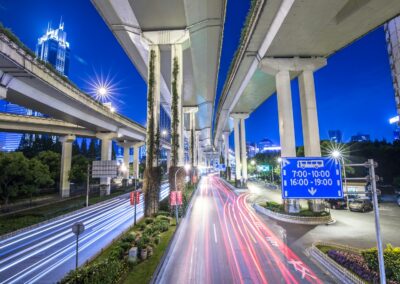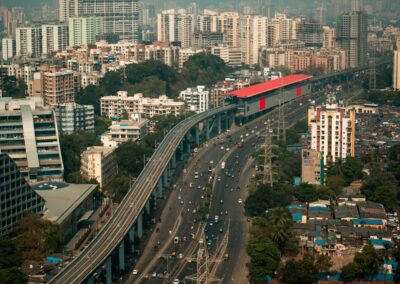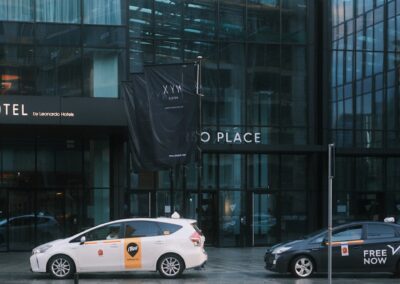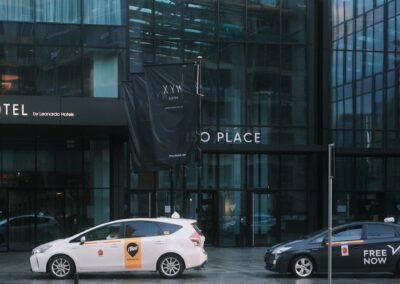Revolutionizing Urban Traffic with Intelligent Traffic Management Systems
Optimizing Traffic Flow with Real-Time Data
Intelligent traffic management systems utilize real-time data collected from various sources such as sensors, cameras, and GPS devices to monitor and manage traffic conditions. In cities like Riyadh, where traffic congestion can be a significant challenge, these systems provide a proactive approach to traffic management. By analyzing real-time data, intelligent traffic systems can dynamically adjust traffic signals, recommend alternative routes, and provide real-time traffic updates to drivers. This real-time optimization not only reduces delays but also enhances the overall efficiency of the transportation network.
Dubai, renowned for its commitment to smart city initiatives, has been a pioneer in implementing intelligent traffic management systems. The city’s traffic management authorities have integrated advanced technologies to monitor traffic patterns and adjust signal timings accordingly. For instance, during peak traffic hours or special events, the system can automatically prioritize specific routes to alleviate congestion. This adaptive approach ensures a smoother traffic flow and a more pleasant driving experience for residents and visitors alike.
Reducing Congestion and Enhancing Road Safety
One of the primary goals of intelligent traffic management systems is to reduce congestion and improve road safety. By leveraging AI and predictive analytics, these systems can anticipate traffic bottlenecks and implement measures to prevent them. In Riyadh, where rapid urbanization has led to increased traffic density, intelligent traffic systems can identify potential congestion points and take preemptive actions to mitigate them. This not only reduces travel times but also decreases the likelihood of accidents caused by traffic congestion.
In Dubai, intelligent traffic management systems have significantly enhanced road safety by providing real-time alerts and notifications to drivers. For example, the system can detect hazardous conditions such as accidents or adverse weather and promptly inform drivers, allowing them to take necessary precautions. Additionally, AI-powered traffic cameras can monitor for traffic violations and ensure compliance with traffic regulations, further enhancing road safety. These improvements in traffic management contribute to a safer and more efficient transportation system, supporting the city’s vision of becoming a global leader in smart urban mobility.
Leveraging AI and Blockchain for Intelligent Traffic Management
The integration of AI and blockchain technologies has further enhanced the capabilities of intelligent traffic management systems. AI algorithms can continuously learn from new data, improving the accuracy and responsiveness of traffic management solutions. In cities like Riyadh, AI-powered traffic systems can analyze historical and real-time data to predict traffic patterns and optimize signal timings. This continuous learning process ensures that the traffic management system remains effective even as traffic conditions evolve.
Blockchain technology adds an additional layer of security and transparency to traffic management systems. By securely recording traffic data and signal adjustments on a blockchain, cities like Dubai and Riyadh can ensure data integrity and prevent tampering. This secure data sharing enables better coordination between various stakeholders, such as traffic authorities, city planners, and technology providers. The combination of AI and blockchain creates a robust and reliable traffic management system that can adapt to future challenges and support sustainable urban growth.
Executive Coaching and Change Management in Traffic Management
The successful implementation of intelligent traffic management systems requires effective leadership and change management. Executive coaching services can provide valuable support to city leaders and traffic management authorities as they navigate the complexities of adopting new technologies. By fostering a culture of innovation and strategic thinking, executive coaches can help leaders in Riyadh and Dubai develop and implement effective traffic management strategies that leverage intelligent traffic systems.
Change management is a critical component of any technological transformation. Introducing intelligent traffic management systems involves significant changes in processes, infrastructure, and mindsets. A structured change management approach can help address potential resistance from various stakeholders and ensure that the new systems are integrated smoothly into existing traffic management frameworks. In rapidly evolving cities like Dubai and Riyadh, effective change management can accelerate the adoption of intelligent traffic systems, driving long-term improvements in urban mobility.
#IntelligentTrafficManagement #TrafficManagement #AI #Blockchain #DubaiTraffic #RiyadhTraffic #ExecutiveCoaching #ChangeManagement #ManagementConsulting #BusinessSuccess























